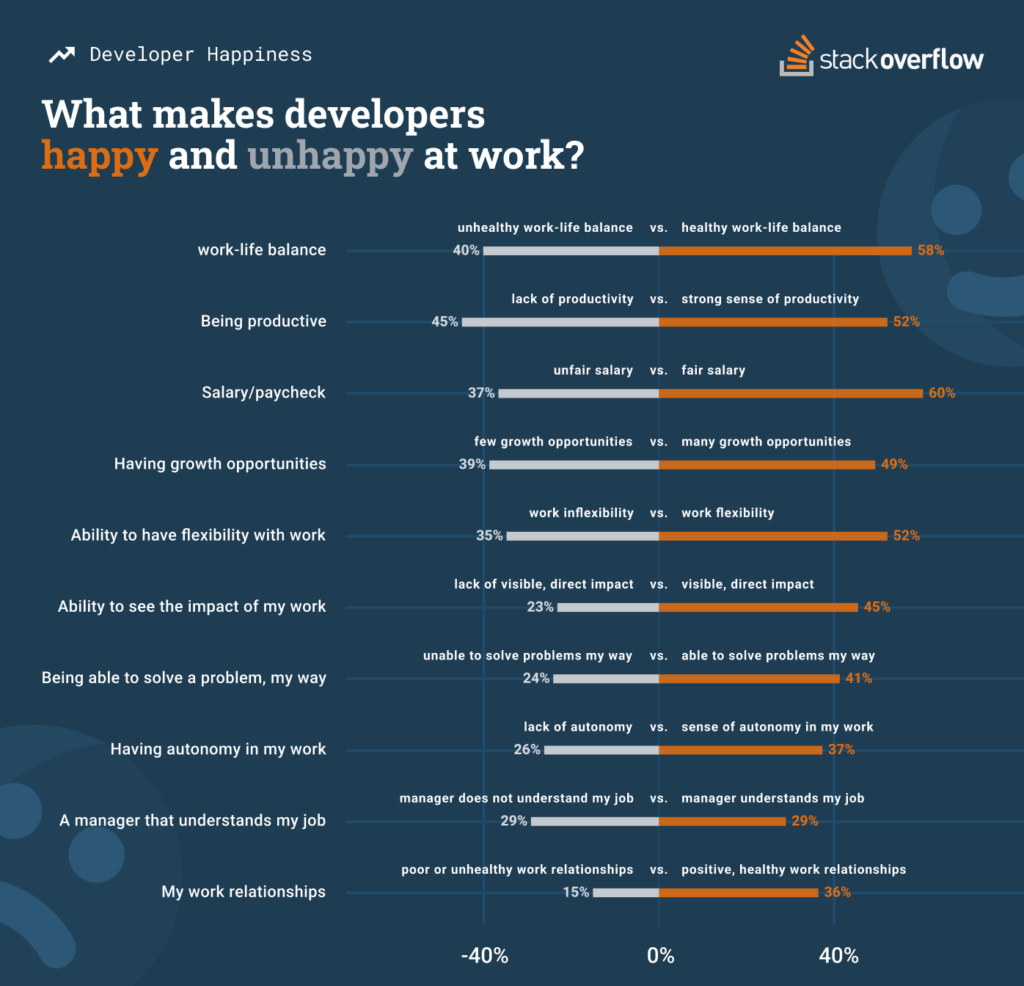There’s been a lot of buzz lately about the “Great Resignation,” with millions of workers quitting their current jobs in search of better opportunities. Technologists are no different, with surveys suggesting many are planning on applying for new positions within the next few months. But are technologists actually happy in their current positions? Is unhappiness driving them to look for new jobs, or is it more a question of taking the opportunity to advance their careers and earn more money?
A new study by Stack Overflow offers a bit of insight into those questions, at least when it comes to software developers. Based on a small survey of 350 respondents, some 70.3 percent of developers said they were happy at work, versus 14.4 percent who said they were unhappy, and 15.3 percent who claimed indifference.
“When we dug deeper, we found that salary (60 percent), work-life balance (58 percent), flexibility (52 percent), productivity (52 percent), and growth opportunities (49 percent) were the top five reasons for developers to be happy at work,” added the text accompanying Stack Overflow’s data. “This data mirrors what other companies, like Skillsoft, have found in recent surveys.”
What drives developer unhappiness? “A low salary, no work-life balance, feeling unproductive at work, and the absence of growth opportunities. Feeling unproductive at work was number one (45 percent) among the factors that cause unhappiness—even above salary, which slipped to fourth (37 percent),” the study continued. Lots of things can wreck that happy feeling, in other words.

With the tech unemployment rate currently at 2 percent, technologists know their skills are in demand. As survey after survey has made clear, they’re also after more than money (although higher compensation is always great). Companies that can provide a solid work-life balance, a sense of mission, and opportunities for growth will often win technologists’ allegiance, even if they can’t offer quite as much in salary as other, larger organizations.
Meanwhile, technologists can use these elevated levels of demand to negotiate for better salary or benefits, change specialties, or even convince an employer to pay for your training. Whether or not you’re happy in your current position, you can always explore potential opportunities.



